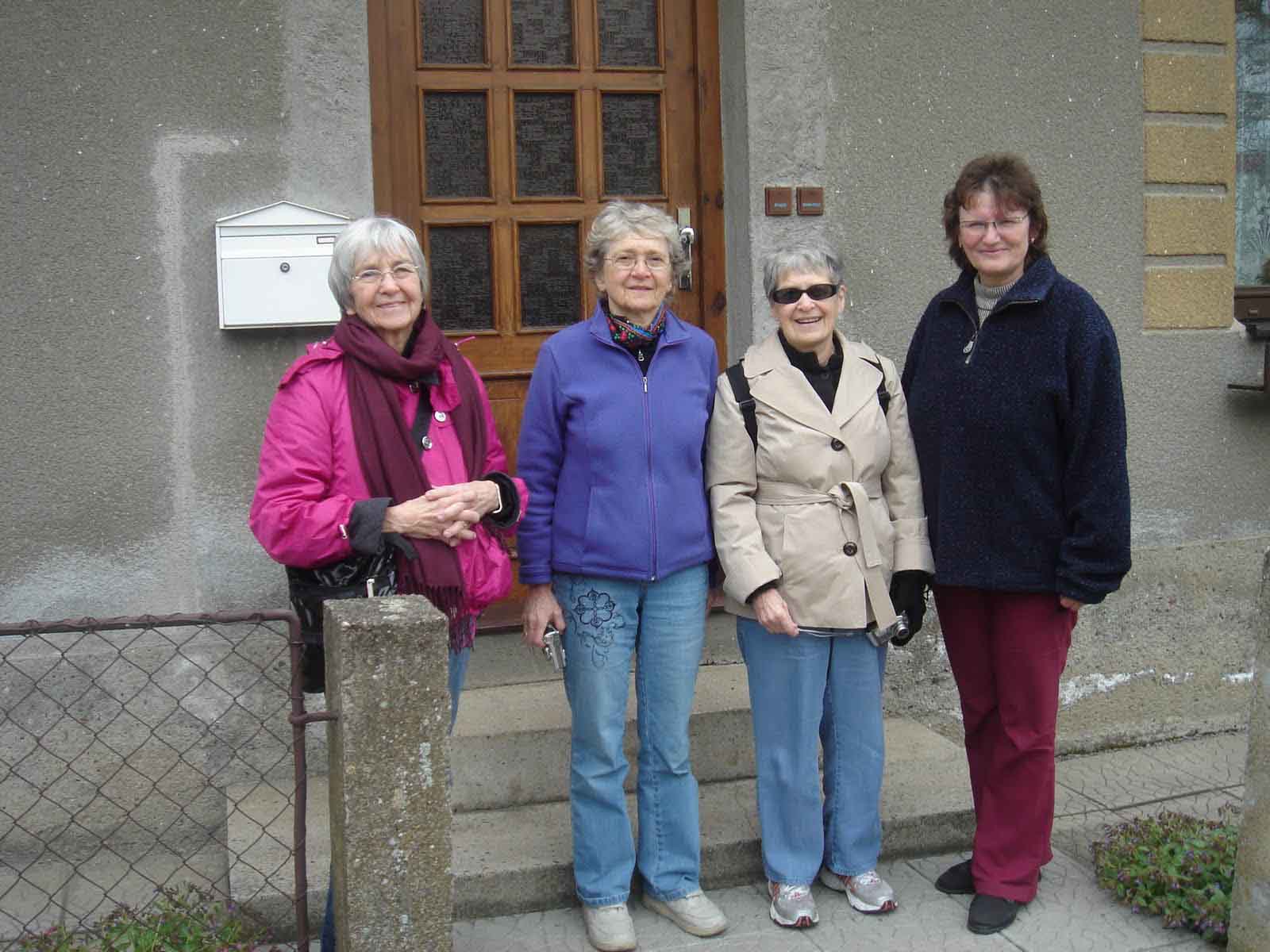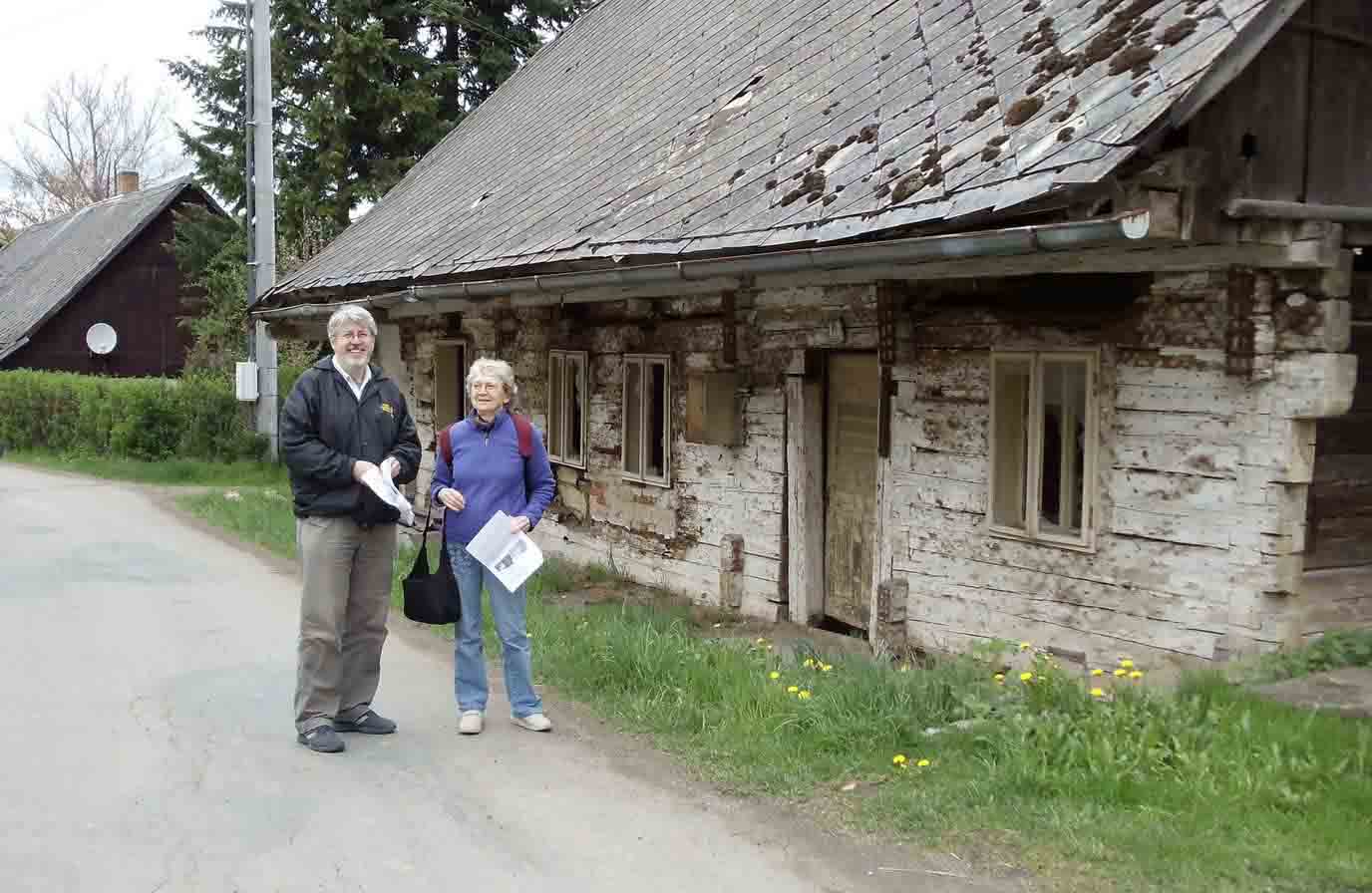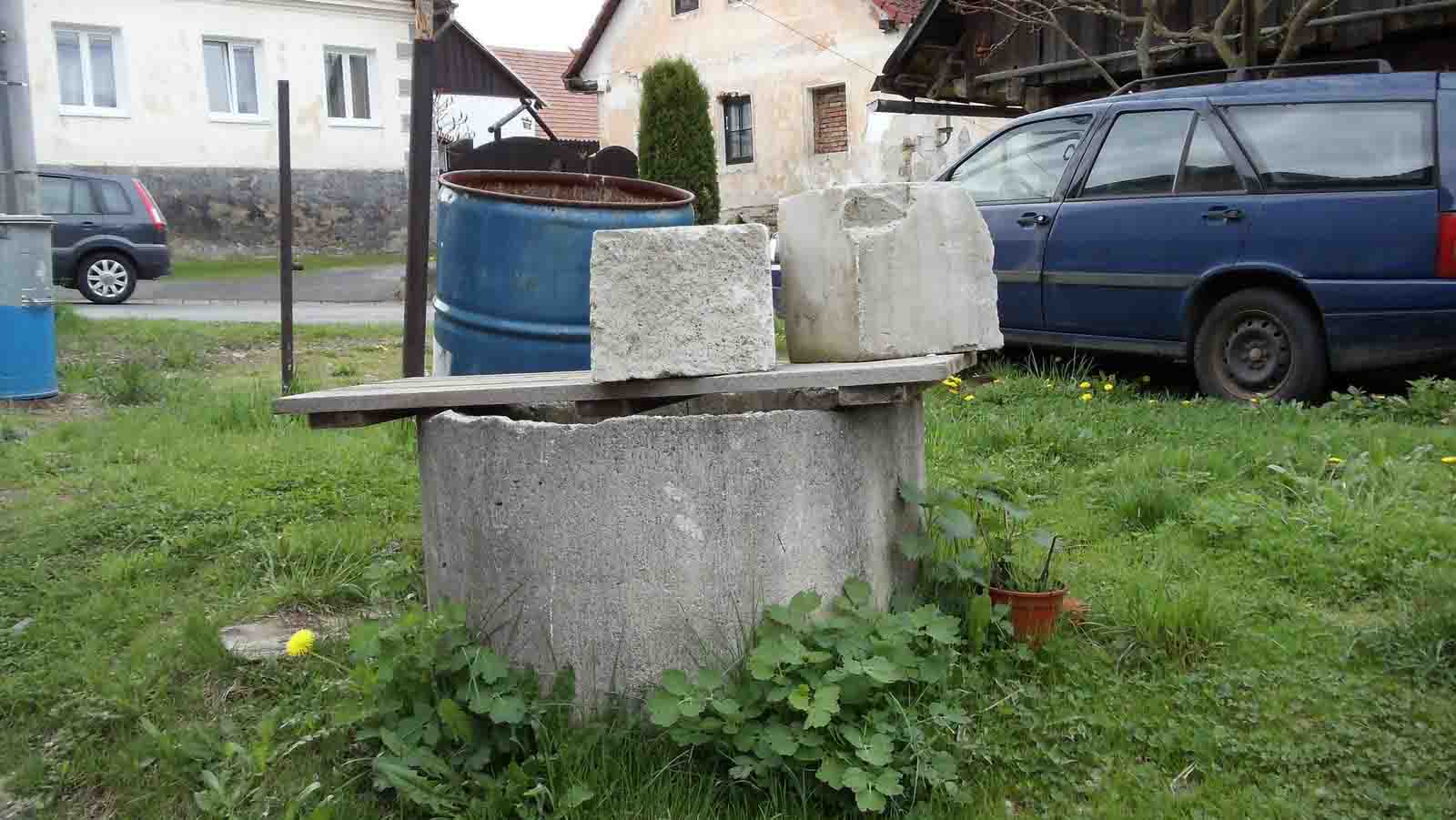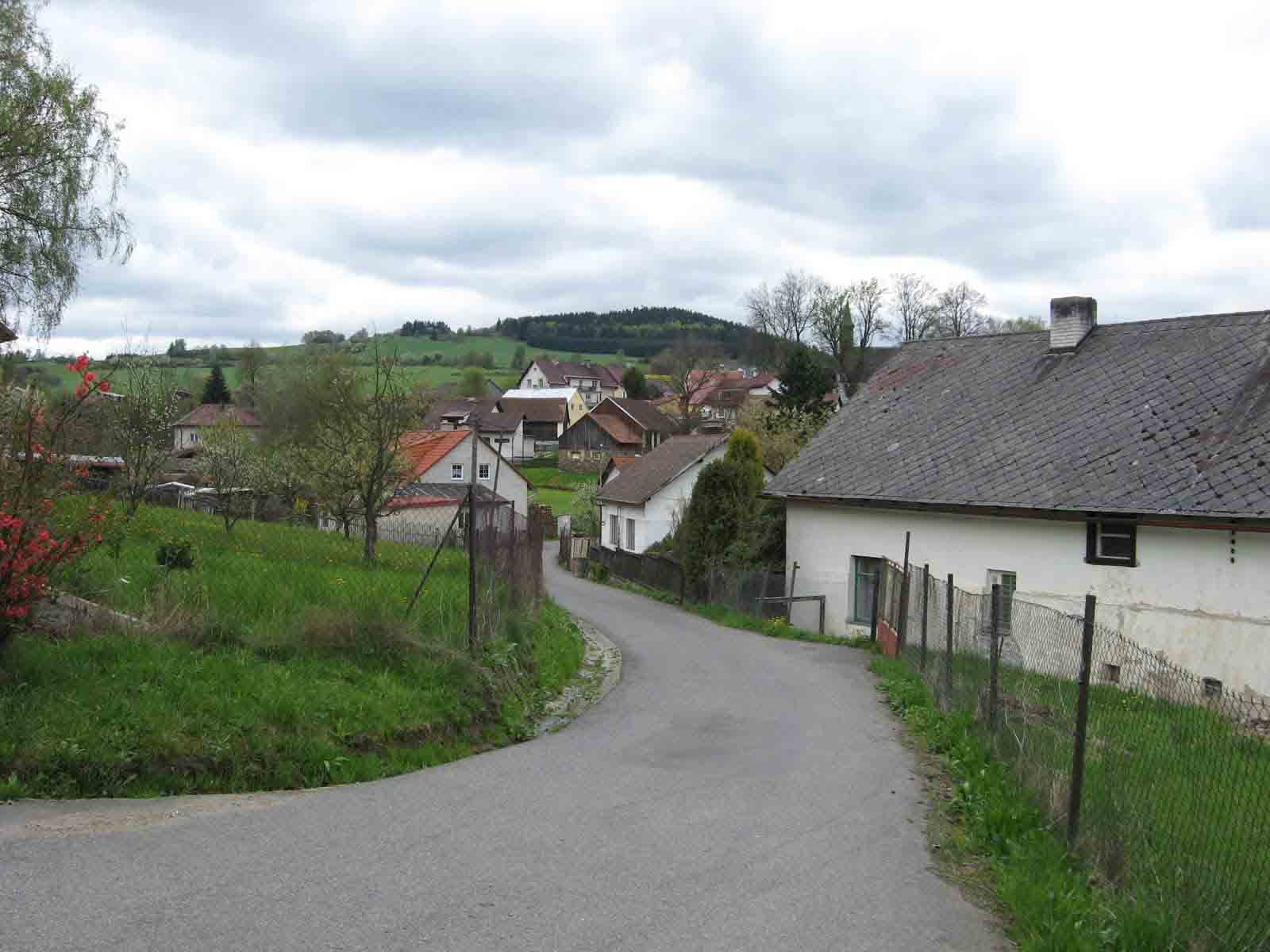
Roots Trip to Langendorf/Dlouhá Ves
I
n May 2010, my two
sisters and I went on a “roots” trip to Eastern Europe. Julius
Müller,
a Prague researcher, was our Czech guide, taking us to Dlouhá
Ves,
Czech Republic, formerly known as Langendorf or Altlangendorf,
Bohemia.
Our Pick and
Schneider great grandparents, Josef
Pick and Eleonore
Schneider
Pick, were born and married in Langendorf. Picks and
Schneiders
had lived there since the 18th century or earlier. They are
listed in the 1793 Bohemian census. In the 1850s, Josef and Eleonore
moved to Vienna, where most of their 12 or more children were born.
Dlouhá
Ves has a
Catholic church, a school, a formerly Jewish street, and an old Jewish
cemetery. Local people seemed well aware that there had been Jews
in the town and knew of the existence of the cemetery. On the WWI
monument in the center of town were some Jewish names. The Jews
had likely first come to Langendorf from Bavaria, before 1720. Most
Bohemian towns had only a handful of Jewish families.
Langendorf had an unusually large number of Jewish families, 36 in
1849. The men were butchers and peddlers who sold kitchen ware
and clothes to settlers in the small towns, traveling during the week
and coming back on the weekends. They worshipped in small prayer
houses.
Julius used
historical records to identify the houses of Markus Pick (our
great-great
grandfather) and his brother, Joachim, - and those of Bernhard
Schneider (our great-great grandfather) and his brother,
Joseph, shown on a 1837 cadastre map.
Amazingly,
the
houses still exist and have
retained their original
footprint inspite of modernization.
During our
visit, Julius knocked on the door of what had been Markus Pick's house
and a woman occupant came out and talked to us. Her husband, who
works the night shift at a Sušice factory, was sleeping so we didn’t go
inside the house. She said that the house had been one room
with another structure in the back for the animals. Julius said
that three families might have occupied a house in the 19th
century. We saw the backyard and took photos in front of the
house. We then walked down the street to the Schneider houses.
Close to the Pick houses was a partially ruined wooden structure with
windows and a dirt floor, probably similar to what our ancestors had
lived in. Since the windows we gone, we were able to see inside.
 Three sisters
with the present occupant of the Markus Pick house
Three sisters
with the present occupant of the Markus Pick house
 Our guide,
Julius, in front of unrestored former Jewish house
Our guide,
Julius, in front of unrestored former Jewish house
 Remains of the
Mikve
Remains of the
Mikve
We walked up a road to the cemetery. It had been
destroyed by the Nazis, but local people had collected what stones they
could still find and took them back to the site, located up a hill and
placed them there randomly. The site is now owned by the Pilsen
synagogue. We were unable to read the stones’ inscriptions due to
erosion, their age, and our lack of knowledge of Hebrew.
Langendorf Jewish
Cemetery
Home
Copyright
©
2011 Ann L.
Fuller


